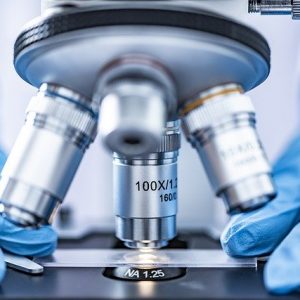CENTRE FOR MICROBIOLOGY RESEARCH (CMR) NAIROBI

Overview
The Centre for Microbiology Research (CMR) is one of the oldest research centres of the Kenya Medical Research Institute (KEMRI). CMR has many laboratories spread in four sub-centres located in Nairobi (Mbagathi and Kenyatta National Hospital complex), Kisumu and the coastal town of Kwale.
The centre has a total of 37 scientific and 13 support staff. In addition, the centre hosts the Nairobi centre for the Nagasaki University Institute of Tropical Medicine (NUITM) with a staff of 10. Our staff is well trained and continuous education is highly emphasized.
Our centre collaborates with many research institutes locally and internationally and this helps to expand our research capabilities. CMR houses the regional laboratory of Antimicrobial Resistance (AMR) testing and Surveillance (the enteric pathogens research unit) and hosts the local chapter of Association for Prudent use of Antimicrobials (APUA). We also have a Mycology lab that carries research on fungal and opportunistic infections. Our research unit at the KEMRI headquarters is involved in travel medicine through research of travellers’ diarrhoea. We are also mandated to conduct research on helminthic infections and we have conducted studies on lymphatic filariasis in the coastal region of Kenya. CMR is also a member of the Global Alliance to Eliminate Lymphatic Filariasis.
The NUITM project is supported by Education, culture, sports, science and technology, Japan and has conducted a field survey on malaria and mosquitoes in Suba district. Our unit also hosts the Microbiology Unit of the Institute of Tropical Infectious Disease (INTROMID). Through INTROMID, a training initiative known as Infectious Disease Research Training Program (IDRTP) was launched. This program is a joint initiative between the University of San Francisco (UCSF) and Washington, USA and the CMR’s The Research Care and Training Program (RCTP) headed by Dr. E.A. Bukusi.
CMR also carries out medical examinations of employees in the hospitality industry (HISP) from hotels, schools, Manufacturing industries at the centre headquarter and in Kwale.
With this brief introduction, welcome to our website. This website is still under construction and will be upgraded regularly to reflect the goals and aspirations of KEMRI in the search of Good Health for Kenyans
Mission
Our mission is to improve human health and quality of life through research, capacity building, innovation and service delivery
Vision
Our vision is to be a leading centre of excellence in research for human health
Functions
The Centre is responsible for conducting research aimed at providing solutions for the reduction of infectious, parasitic, bacterial and non-infectious diseases causing ill health in the Kenyan population. To conduct microbiological research, service provision and capacity building aimed at providing solutions for the reduction of infectious disease burden:
- Diarrhoea: cholera, shigella, pathogenic E. Coli, salmonella-epidemiology, characterization and drug testing;
- Sexually Transmitted infections; aetiology, prevalence, epidemiology, control strategies; HIV/AIDS – opportunistic infections, care and research in clinical trials.
- Other bacterial and mycotic infections: aetiology, prevalence, epidemiology, control strategies
- Epidemiology of nosocomial infections; aetiology and control strategies; Antimicrobial drug resistance monitoring and surveillance, and genomics; Protozoal and helminthic infections: aetiology, epidemiology, immunology, control strategies; Provision of laboratory services including medical certification to the hospitality industry in Kenya;
- Capacity building and mentorship through the postgraduate training program and collaborations
- Diseases research and rapid response.
ENTERIC DIVISION
To conduct research on emerging infectious bacterial diseases/opportunistic infections and molecular epidemiology of enteric parasites. The (3) three units are namely:
- Bacterial diarrhea/AMR
- Molecular diagnostic
- Outbreak rapid response
Functions
- To conduct research on diarrhea illness caused by bacterial pathogens such as Cholera, Shigella, Salmonella, Pathogenic E. coli.
- To carry out epidemiology, characterization of bacterial pathogens.
- To carry out drug sensitivity testing of bacterial and parasitic pathogens and other microbiological agents (excluding viruses).
MYCOLOGY & AMR DIVISION
To conduct research on Mycosis and Mycotoxin surveillance. They are
- Aflatoxins
- Salmonella
- AMR surveillance
Functions
- To conduct research on the isolation of fungal infection in humans.
- To conduct investigative research on aflatoxins research.
- To carry out drug sensitivity testing of bacterial and parasitic pathogens and other microbiological agents (excluding viruses)
- To carry out bacterial investigations in epidemic and endemic outbreaks (epidemiology and characterization).
Opportunistic Infections and Genomics Division
To conduct research in antimicrobial resistance surveillance genomics, genetic basis of bacterial and parasitic infections epidemiology
- Epidemiology-HIV
- NUITIM Collaboration
- Food handlers program
Functions
- To conduct molecular characterization of virulence factors of disease-causing bacteria.
- To conduct research in resistance genes in bacterial pathogens.
- To conduct research in relatedness using genomics or sequences applications of bacterial organisms and drug sensitivity testing
| Collaborator/Partner | Programme area for Collaboration |
| World Health Organization (WHO) | Development of modules for a Standardized District Level Management NTD Training Course |
| Nagasaki University (NUITM/KEMRI Project) | Operational research in parasitology (schistosomiasis, STH), malaria entomology, and school health |
| Centre for Neglected Tropical Diseases (CNTD), Liverpool School of Tropical Medicine, UK |
|
| London School of Hygiene and Tropical Medicine, UK | Research on soil-transmitted helminths control |
| Partnership for Child Development (PCD) | Capacity building in school health and nutrition |
| Evidence Action/Deworm the World | Supporting national school-based deworming programmes |
| Centers for Disease Control & Prevention (CDC) | Research on soil-transmitted helminths in urban slum dwellings |
| Innovations for Poverty Action (IPA) | Research on improvements of water quality, hygiene, sanitation, and nutrition on child health and development |
| RTI International | Technical assistance in NTD programme implementation and operational research |

Dr. Christine Bii
Ag. Deputy Director CMR
Dr. Christine C. Bii (PhD) has over 30 years of experience in research in Medical Mycology. Her interest is on opportunistic fungal infections in HIV/AIDS, diabetes, cancer, Aspergillosis in TB and mycotoxins. Her current focus is molecular characterization of Cryptococcus, Candida Spp. and triazole antifungal resistance in Aspergillus spp.
She established research and training in Medical Mycology in KEMRI and her research has contributed to the recognition of fungal infections as a significant cause of morbidity and mortality in immunocompromised individuals. She has authored over 70 manuscripts in peer-reviewed journals and mentored over 60 postgraduate students.
